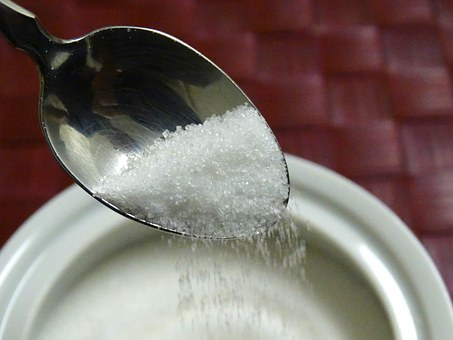Artificial Sweetener Aspartame Is Carcinogenic
© HealthyMuslim. See Terms and Conditions

You should avoid any intake of aspartame like the plague. It is a carcinogen and has many different detrimental effects upon the body.
According to researchers and physicians studying the adverse effects of aspartame, the following chronic illnesses can be triggered or worsened by ingesting of aspartame: brain tumors, multiple sclerosis, epilepsy, chronic fatigue syndrome, Parkinson's disease, Alzheimer's, mental retardation, lymphoma, birth defects, fibromyalgia, and diabetes.
Please note that there is also a huge effort on behalf of the makers of and financial beneficiaries of aspartame to try and prove its safety and dismiss all evidence to the contrary. Whenever any study establishes the toxicity or carcinogenicity of aspartame, these corporations, and the organizations representing their interests are quickly out to "interpret" and "explain" the findings and show that they are inconsistent with their own findings.
The latest research has been done by the Ramazzini Foundation and a news release item on their website states about their findings:
New aspartame data to be presented at Mount Sinai School of medicine in NYC, USA
A second study conducted by the European Ramazzini Foundation (ERF) confirms the carcinogenicity of aspartame. The results of this study will be presented April 23, 2007 at the Mount Sinai Medical School of New York, where ERF Scientific Director Morando Soffritti will receive the third Irving J. Selikoff Award.
Aspartame is an artificial sweetener consumed by hundreds of millions of people worldwide. It is used in over 6,000 diet products including soft drinks, chewing gum, candy, desserts, yogurt as well as in pharmaceuticals, in particular, syrups and antibiotics for children. In 2005, the European Ramazzini Foundation published important experimental data demonstrating the carcinogenicity of aspartame. These data demonstrated for the first time that aspartame is a carcinogenic agent, inducing various types of malignant tumors in rats, even at dose levels currently considered acceptable for humans.
As soon as carcinogenic effects were perceived during this first study, the ERF began a second long term experiment, administering aspartame at low doses in feed to rats beginning during fetal life.
In a world exclusive, Italian news station TG2 announced on April 13th that the European Ramazzini Foundation will present the results of this second study at the Mount Sinai School of medicine at the end of April when Scientific Director Dr. Morando Soffritti will receive the third Irving J. Selikoff Award.
This study is a repeat of a study they did in 2005 which did not receive acceptance by the pro-aspartame corporately influenced organizations.
Link to this article: Show: HTML Link • Full Link • Short Link
Share or Bookmark this page: You will need to have an account with the selected service in order to post links or bookmark this page.





|
Related Articles:
- Cancer Said To Be No. 1 Killer by 2010
- Disease-Fighting Properties of Green Tea
- Regular Exercise 'Prevents Breast Cancer'
- Caution on Triclosan - An Anti-Bacterial In Soaps, Toothpastes, Deodorants And Cosmetics
- Green Tea, Blueberry and Raspberry Fruit Extracts Touted as Potential Cancer Fighters
- Artificial Sweetener Aspartame Is Carcinogenic
- Mobile Phone Use 'Raises Children's Risk of Brain Cancer Fivefold'
- Dr Linus Pauling, Vitamin C Infusions and Cancer
You must be registered and logged in to comment.
Most Popular
Latest Articles
Popular Subjects
Health, fitness and longevity
Based upon the principles of health
in the Qur'an and Prophetic Traditions.
HealthyMuslim.Com
There are two bounties in which
most people lose out: good health
and free time. Al-Bukhari.























